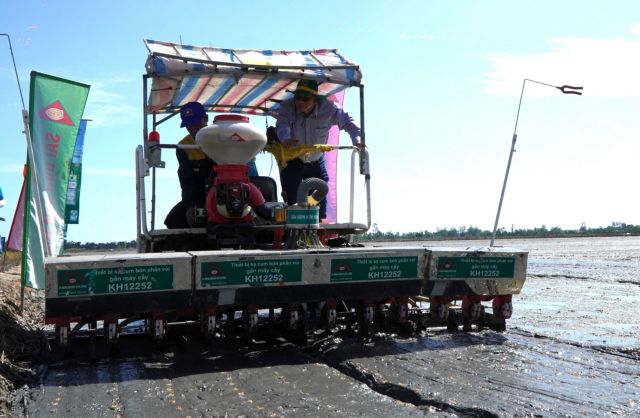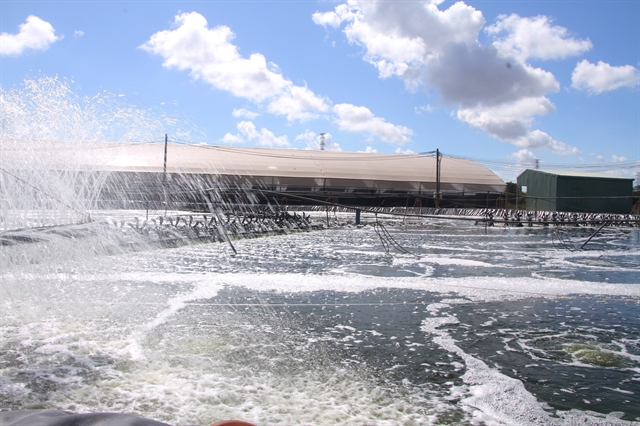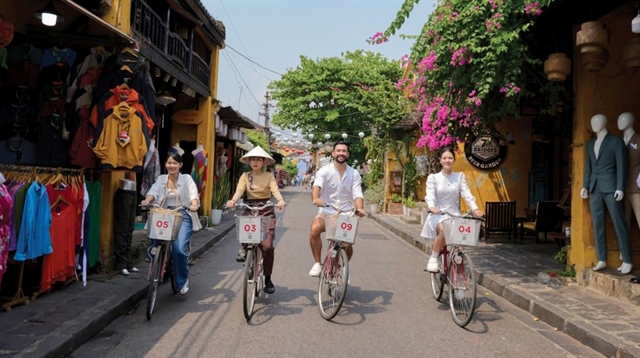 Environment
Environment

 |
| A hi-tech shrimp farm in Bạc Liêu Province that is sustainable and can ease pressure on the marine environment. VNA/VNS Photo Chanh Đa |
MEKONG DELTA – Coastal provinces in the Mekong Delta have been focusing on developing a sustainable, environmentally friendly and climate change adaptive maritime economy to ensure strong development and improve the lives of their people.
Bến Tre Province aims to have a sustainable and strong marine economy that focuses on developing renewable energy, aquaculture and tourism by 2030.
To this end, it has prioritised off-shore aquaculture and fishing and promoted marine conservation.
It has also fine-tuned policies, invested in infrastructure, supported local businesses and farmers and encouraged them to apply technology in producing and selling environmentally friendly products.
Efforts have been made to raise awareness of environmental protection and develop sustainable agricultural practices.
Local authorities said any business model or practice that could do harm to the environment would not be licensed.
Besides, Bến Tre will develop over 50,000ha of its eastern region under a development plan for until 2030.
It will focus on building a vibrant maritime economy that can also protect the environment, prevent coastal erosion and adapt well to climate change.
Trần Ngọc Tam, chairman of the provincial People’s Committee, said Bến Tre has invested in maritime infrastructure such as the Cửa Đại Bridge connecting with Tiền Giang Province, the Rạch Miễu 2 Bridge and the Phú Thuận Industrial Zone, among others.
It has also devised solutions to minimise greenhouse gases such as expanding agricultural models with a low carbon footprint, building grid-connected wind power plants and developing organic farming.
Bạc Liêu Province has been focusing on protecting its maritime biodiversity and resources and utilising their advantages.
It has increased the use of technology to forecast and warn about natural disasters, enabling authorities to proactively devise preventive measures and adapt faster to climate change and sea level rise.
It has also built coastal residential areas that are eco-friendly and well adapt to climate change.
To foster the marine economy, it has actively applied new technologies in fishing, marine farming and seafood processing.
It has switched from traditional to more advanced and environmentally friendly models, focusing on developing a hi-tech closed value chain to churn out high-quality products.
Weather monitoring stations around the province have been installed with hi-tech equipment.
The southernmost province of Cà Mau has advantages for developing various marine industries, but a rapid increase in coastal services, excessive fishing and urbanisation have placed enormous pressure on the marine environment.
Đỗ Quang Hưng, deputy director of the province's Department of Natural Resources and Environment, said it was crucial to use the media to raise awareness of environmental protection and educate people on the risks of oil spills to preclude possible disasters.
The department said it would continue to have programmes for marine protection, such as establishing a sea conservation area, placing artificial coral reefs at conservation areas and building maritime corridors to protect coastal areas.
Hưng said it was also important to invest in projects that utilise the maritime advantages and protect the environment and biodiversity. – VNS




